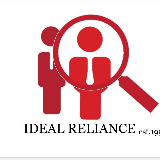1. Technical Skills- System and Application Knowledge: Supporting applications, including their functionality, architecture, and dependencies.
- Database Knowledge: Familiarity with SQL and the ability to query databases for troubleshooting.
- Operating Systems: Proficiency in working with different operating systems like Windows, Linux, or Unix
- Troubleshooting and Debugging: The ability to identify the root cause of issues by analyzing logs, application data, system performance, and user interactions.
- Web Technologies: Understanding of web technologies such as HTTP/HTTPS, web servers, web frameworks, APIs, etc. Scripting and Automation:
- Knowledge of scripting languages will be an added advantages (e.g., Python, Shell scripting, PowerShell) to automate common tasks, resolve issues, and generate reports.
2. Incident Management- Ticketing Systems: Experience with IT service management (ITSM) tools like ServiceNow for tracking, escalating, and documenting incidents.
- Escalation Procedures: Ability to escalate issues to development teams, system admins, or vendors when necessary and manage the communication between teams.
- Change Management: Familiarity with processes around change management and applying fixes or patches to applications in a controlled manner.
3. Communication Skills- Documentation: Writing clear, detailed documentation for troubleshooting steps, solutions, and best practices.
- Customer Interaction: Interacting with end users or customers, providing updates, and managing expectations.
- Collaboration: Working with cross-functional teams (development, infrastructure) to resolve complex issues
4. Application Support Tools- Cloud Services: Understanding of cloud environments (AWS)
- Monitoring Tools: Knowledge of monitoring tools for tracking system health, application uptime, and performance.
5. Security Awareness- Security Best Practices: Awareness of security protocols (e.g., SSL/TLS, authentication, and authorization mechanisms) to ensure that application issues & compromise security. Access Control: Understanding user access levels and privileges, and the ability to troubleshoot permission-related issues.
6. Knowledge of Industry Best Practices- ITIL Knowledge: Understanding of ITIL (Information Technology Infrastructure Library) principles for incident, problem, and change management can be helpful.
- Service Level Agreements (SLAs): Familiarity with SLAs to manage user expectations and meet resolution targets.


